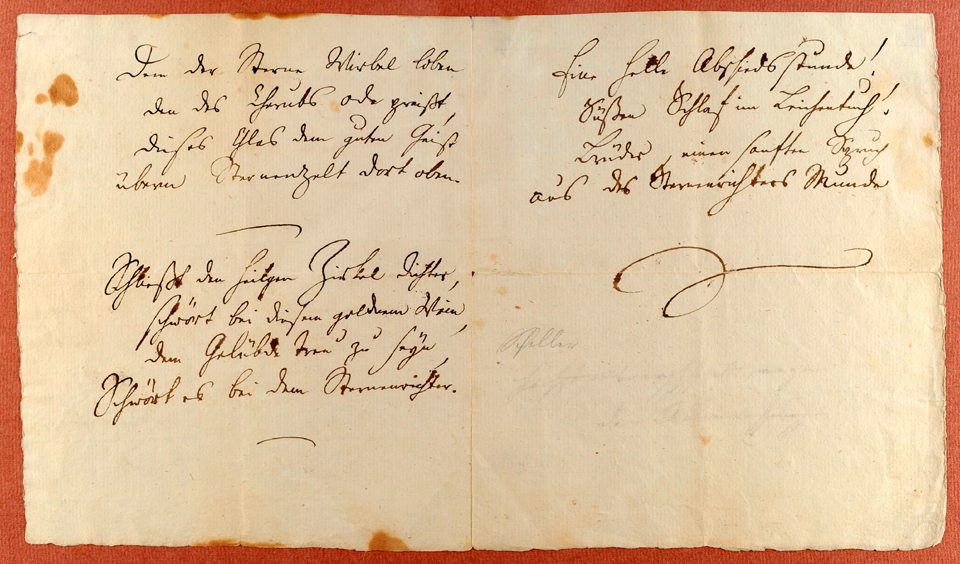
Ode to Joy
"Ode to Joy" (German: "An die Freude" [an diː ˈfʁɔʏdə]) is an ode written in the summer of 1785 by German poet, playwright, and historian Friedrich Schiller. It was published the following year in the German magazine Thalia. In 1808, a slightly revised version changed two lines of the first stanza and omitted last stanza.
This article is about Schiller's poem. For the "Ode to Joy" theme by Beethoven, see Symphony No. 9 (Beethoven). For other uses, see Ode to Joy (disambiguation)."Ode to Joy" is best known for its use by Ludwig van Beethoven in the final (fourth) movement of his Ninth Symphony, completed in 1824. Beethoven's text is not based entirely on Schiller's poem, and it introduces a few new sections. Beethoven's melody,[1] but not Schiller's text, was adopted as the "Anthem of Europe" by the Council of Europe in 1972 and later by the European Union. Rhodesia's national anthem from 1974 until 1979, "Rise, O Voices of Rhodesia", also used Beethoven's melody.
Over the years, Beethoven's "Ode to Joy" has remained a protest anthem and a celebration of music.
Other musical settings of the poem include: